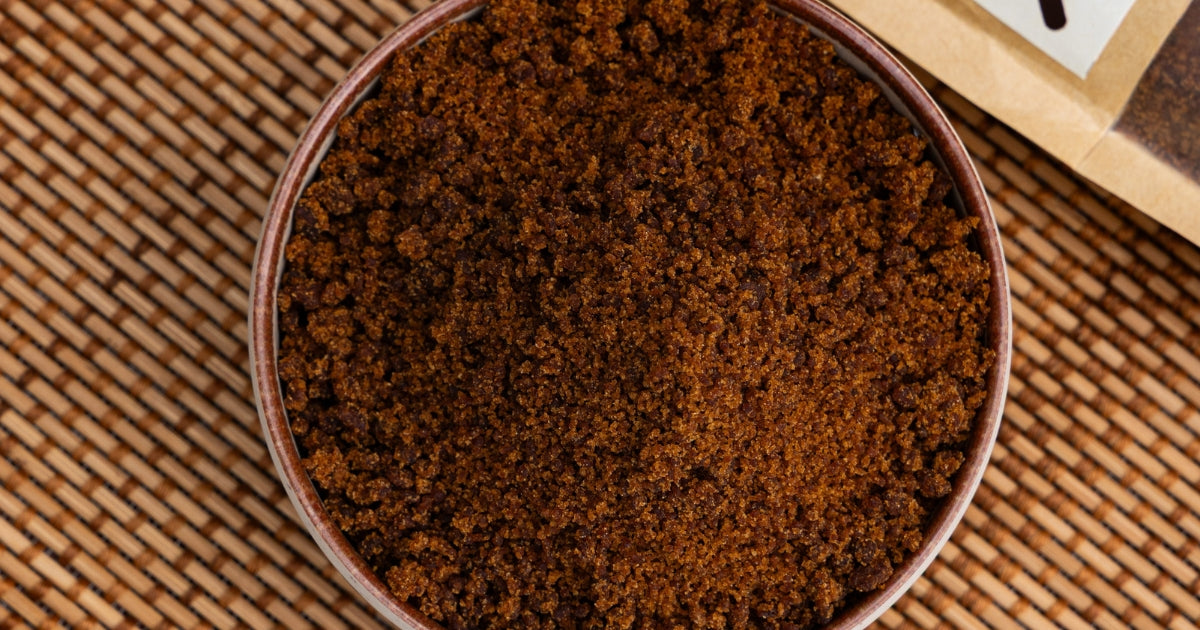We all know that refined sugar is extremely harmful to the body. It is nothing but empty calories. So then, what is the alternative? What can add that element of sweetness to our food? Well, jaggery sugar is a good option. It can act as a substitute for white sugar in everything, from a cup of tea to a nice homemade dessert. Let’s get to know jaggery and its advantages a bit better in this blog.
Jaggery is a type of unrefined sugar that is made from sugar cane or date palm sap. Unrefined sugars are thought to be healthier than refined sugars because they are less processed and contain small amounts of nutrients that are lost during the refining process. These nutrients may include minerals such as iron, calcium, and potassium, as well as small amounts of fiber. In contrast, refined sugars, such as white sugar, have been stripped of most of their impurities and nutrients during the refining process and are essentially pure carbohydrate.
Now you may ask what about brown sugar? Isn’t brown sugar a healthy sweetener? Well, here are the major differences between jaggery sugar and brown sugar:
-
Production process: Jaggery sugar is made by grinding jaggery into a fine powder. Brown sugar, on the other hand, is made by adding molasses back to refined white sugar.
-
Nutritional content: Jaggery sugar contains small amounts of minerals such as iron, calcium, and potassium, which are not present in white sugar. Brown sugar also contains small amounts of these minerals, but not as much as jaggery sugar.
So now we know that jaggery sugar is the healthier of the other sugar alternatives. Also, at Naturley, we sell organic jaggery-sugar. It is important to note that organic jaggery-sugar is made using methods that are environmentally and socially responsible, without the use of synthetic pesticides, herbicides, or fertilizers.
Let’s now delve deeper into the process of producing organic jaggery-sugar. The production process typically involves the following steps:
- Harvesting: The first step in making jaggery-sugar is to harvest the sugar cane or date palm sap. In the case of sugar cane, the stalks are cut down and the leaves are stripped away to reveal the cane.
- Extracting the juice: The juice is then extracted from the cane or palm sap using a press or mill.
- Boiling and crystallization: The juice is boiled until it becomes thick and syrupy. As it cools, the jaggery will begin to crystallize, forming solid chunks.
- Filtering and purification: The jaggery is filtered to remove any impurities or foreign matter.
- Grinding: It is ground into a fine powder to produce jaggery-sugar.
- Packaging: The jaggery-sugar is then packaged for distribution.
Now we’ve said a number of times that jaggery is relatively healthier but what does that imply? In what ways is it healthy? Let’s have a look at some of its magical powers:
- Helps to cleanse the body: Jaggery is thought to help remove toxins from the body and support the natural detoxification processes.
- Boosts energy: It is a natural source of carbohydrates, which can provide a quick boost of energy.
- Supports digestive health: It is believed to stimulate the production of digestive juices and enzymes, which can help to improve digestion and prevent constipation.
- Reduces the risk of iron deficiency anemia: Anemia makes it difficult to focus and can cause fatigue and muscle weakness. Jaggery is an excellent source of plant-based iron. While a single serving of jaggery is not enough to meet your daily iron needs, replacing refined sugar with jaggery will add more iron to your diet and help reduce your risk of developing anemia.
- Has antioxidant effects: According to a ScienceDirect article and other research, jaggery may contain antioxidants, which are compounds that can help to neutralize harmful free radicals in the body. This may help to protect against the development of chronic diseases such as heart disease and cancer.
Though these benefits are wonderful, it is also important to note that jaggery sugar is still a source of added sugar and that it should be consumed in moderation and as a part of a balanced diet.
Now that you have a complete overview of the topic, it’s time to empty those containers of refined white sugar and instead fill them with the goodness of jaggery sugar.

